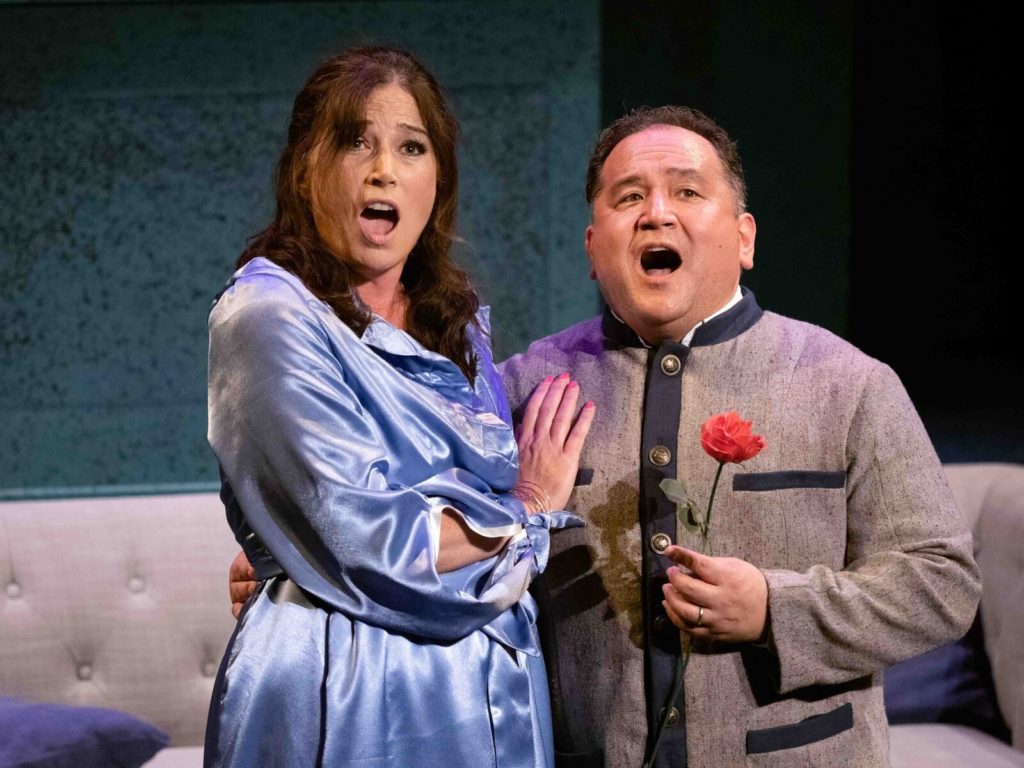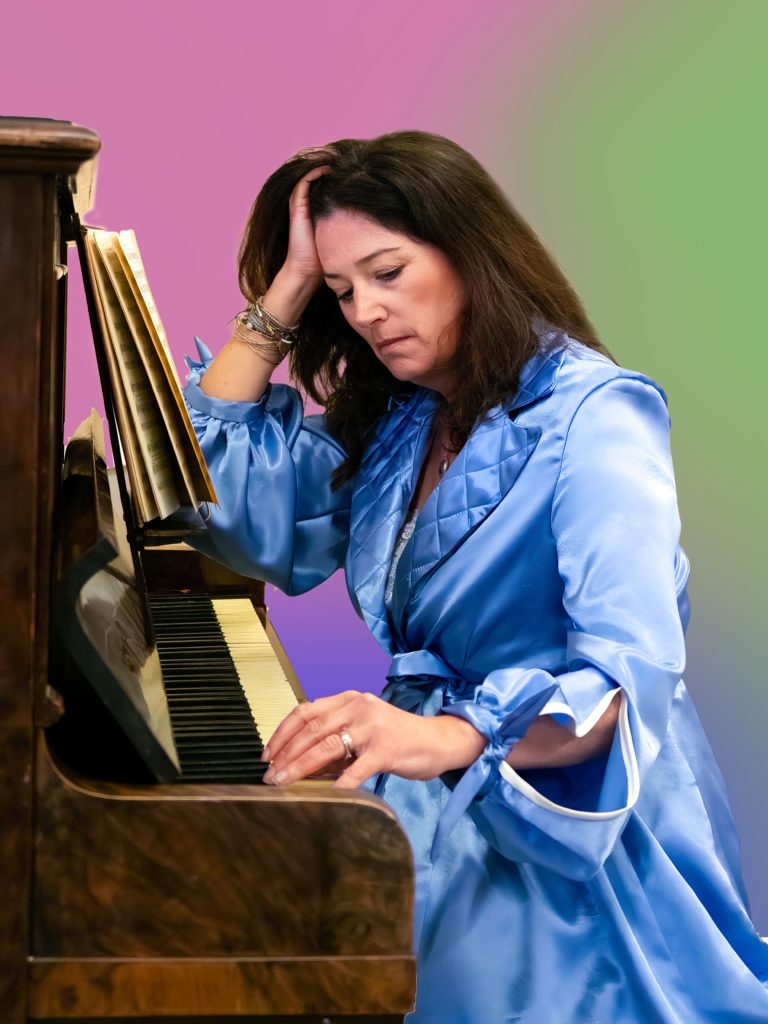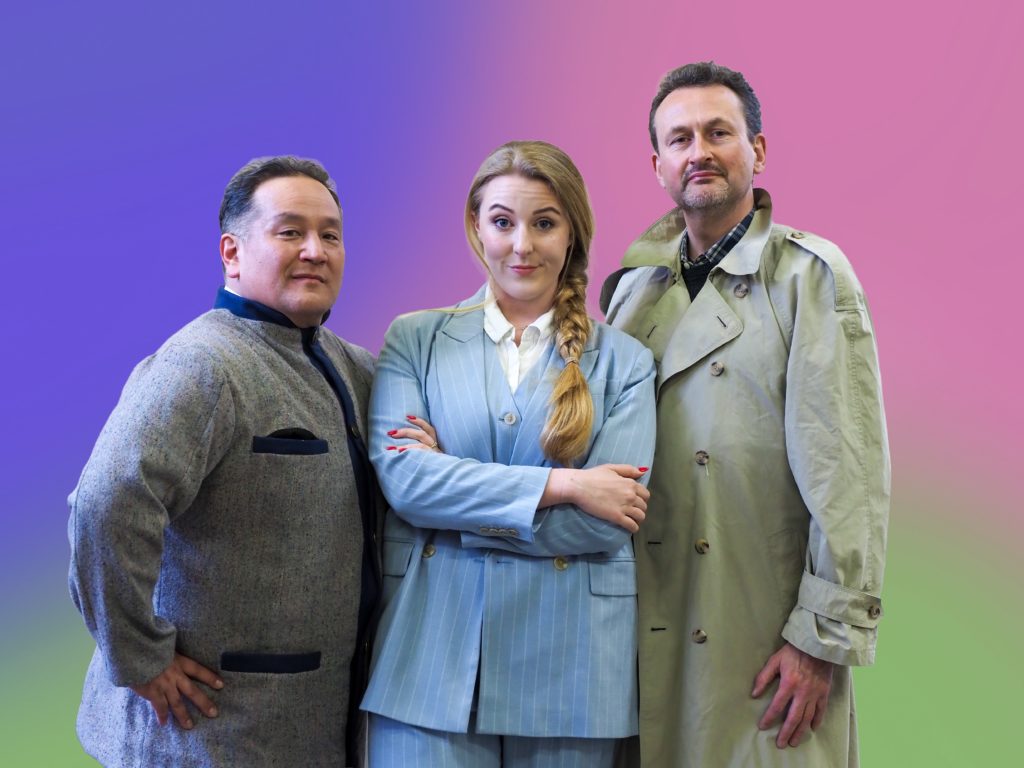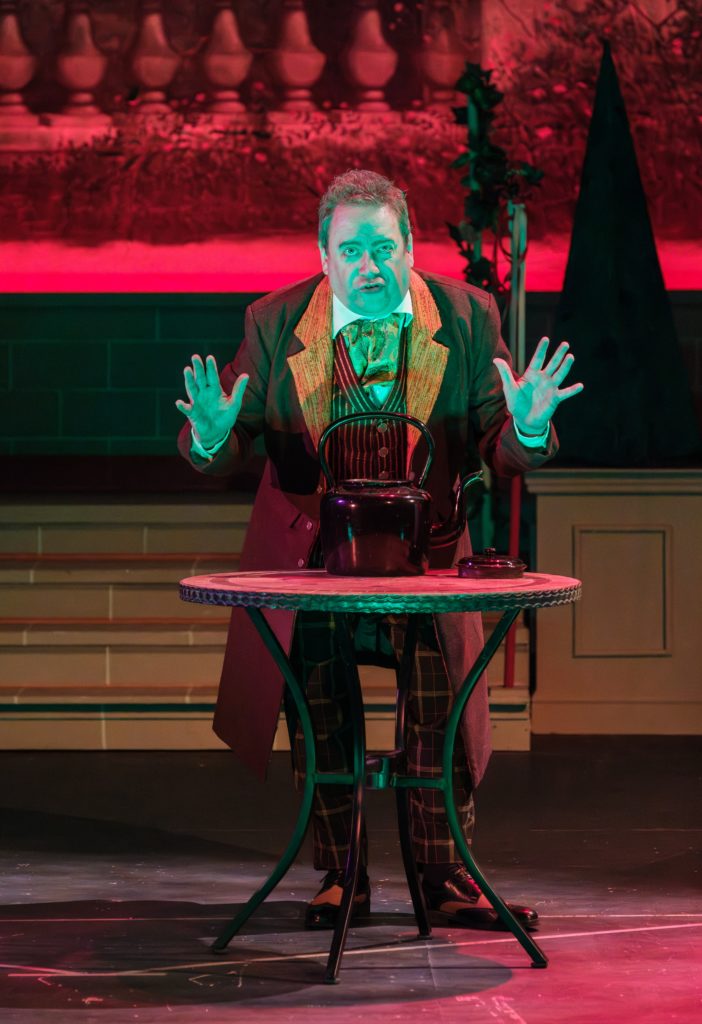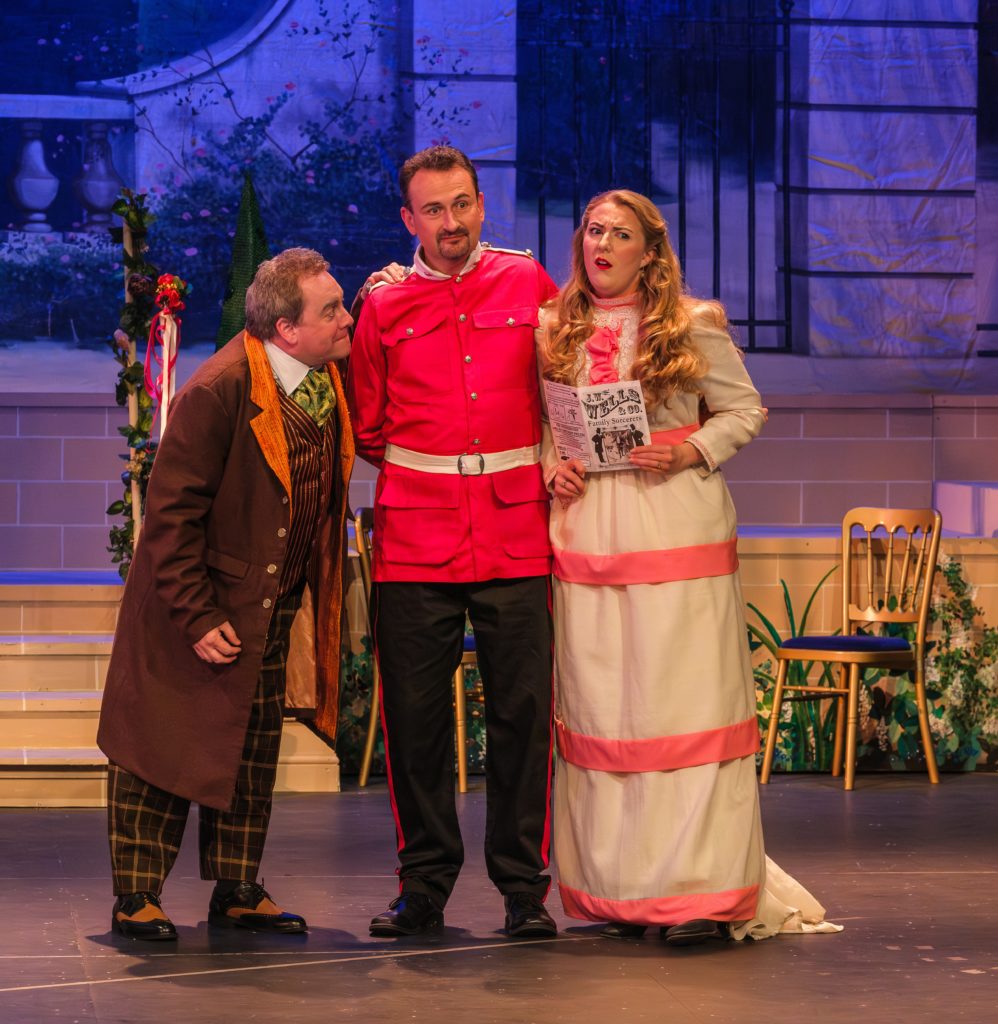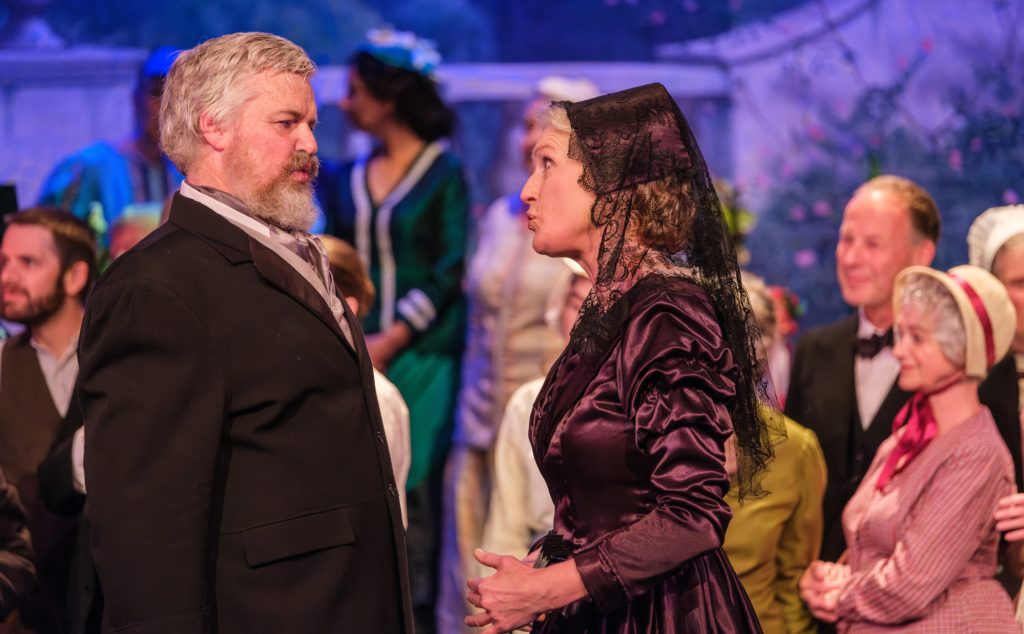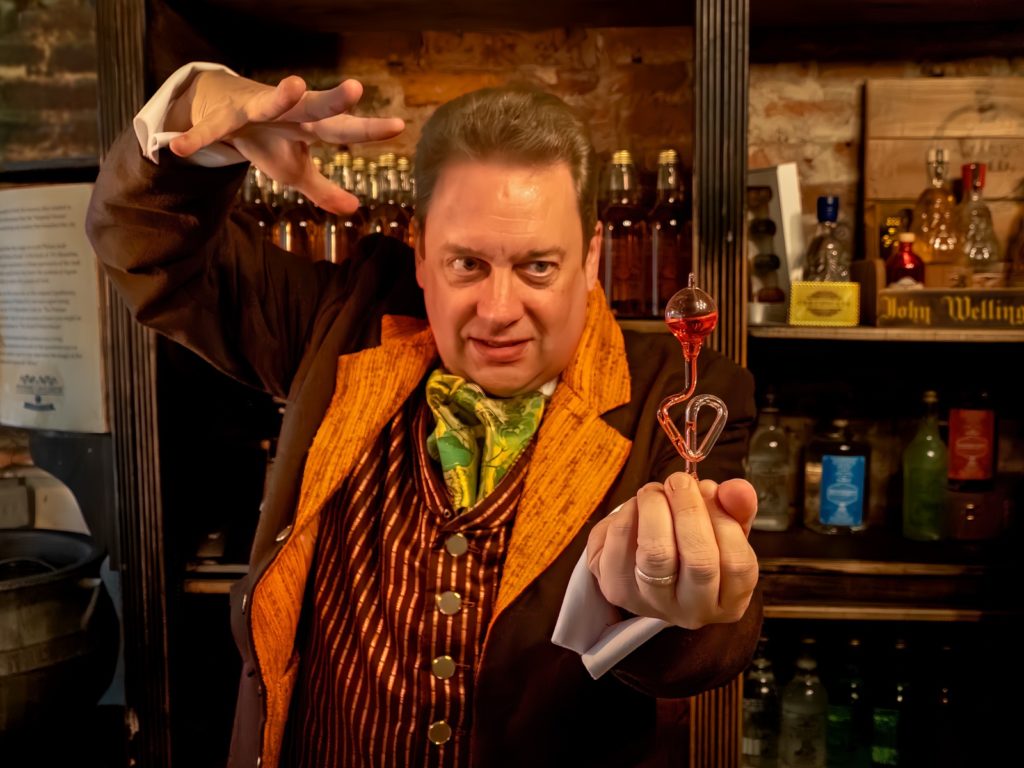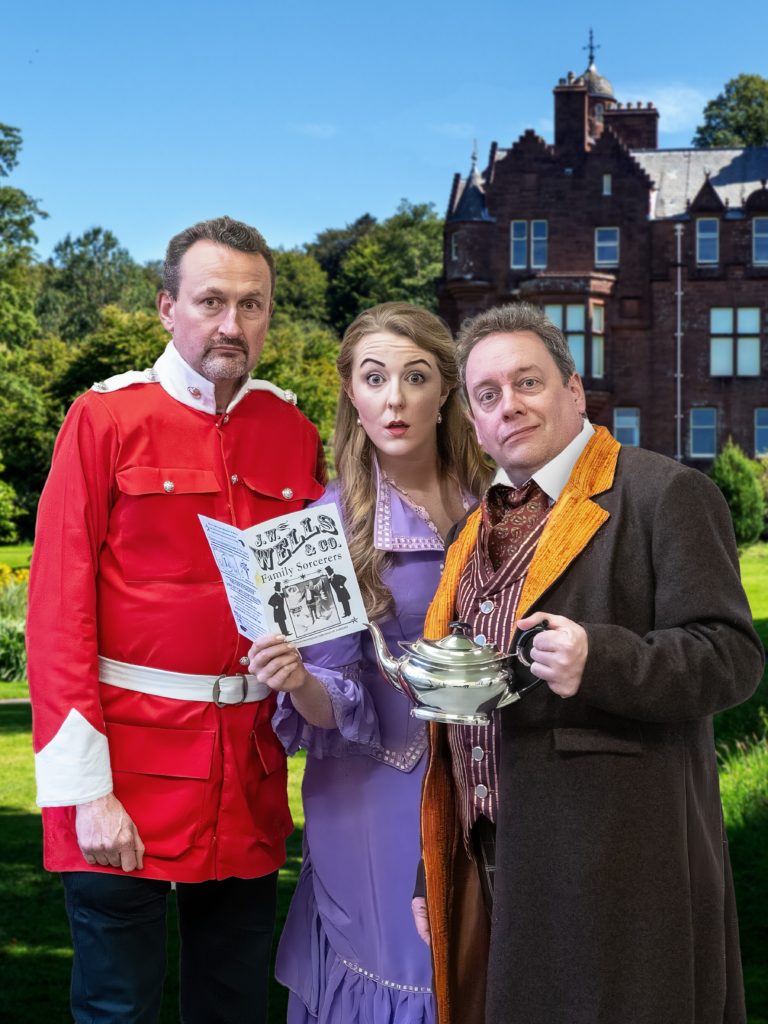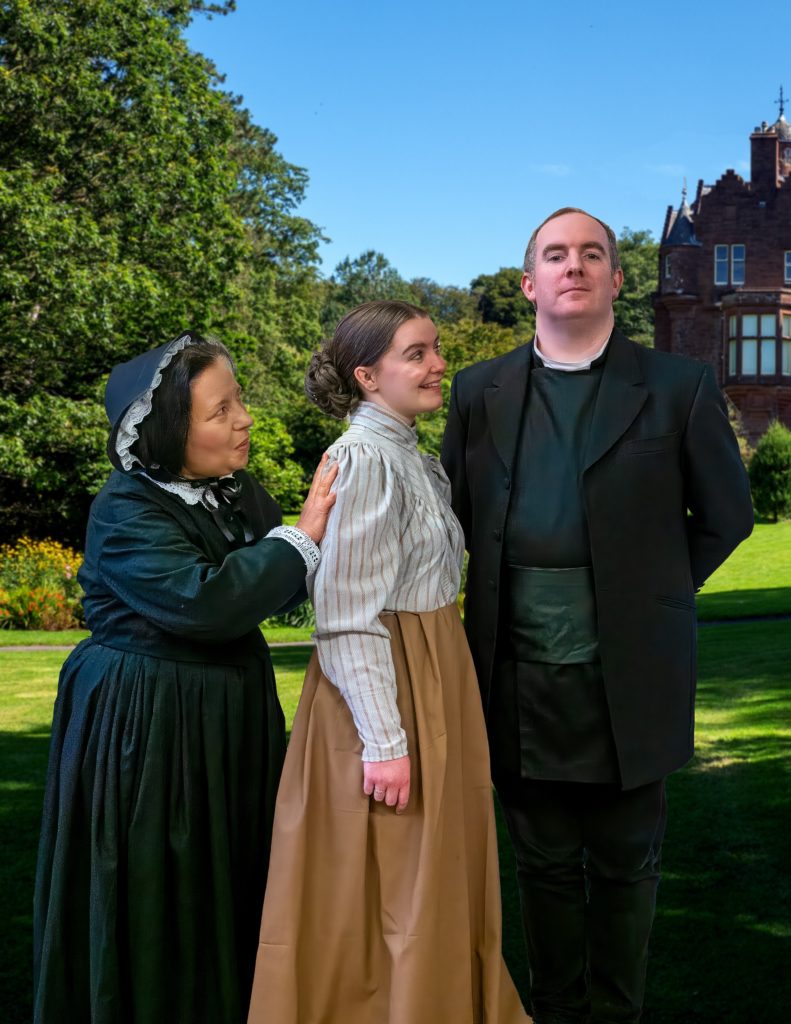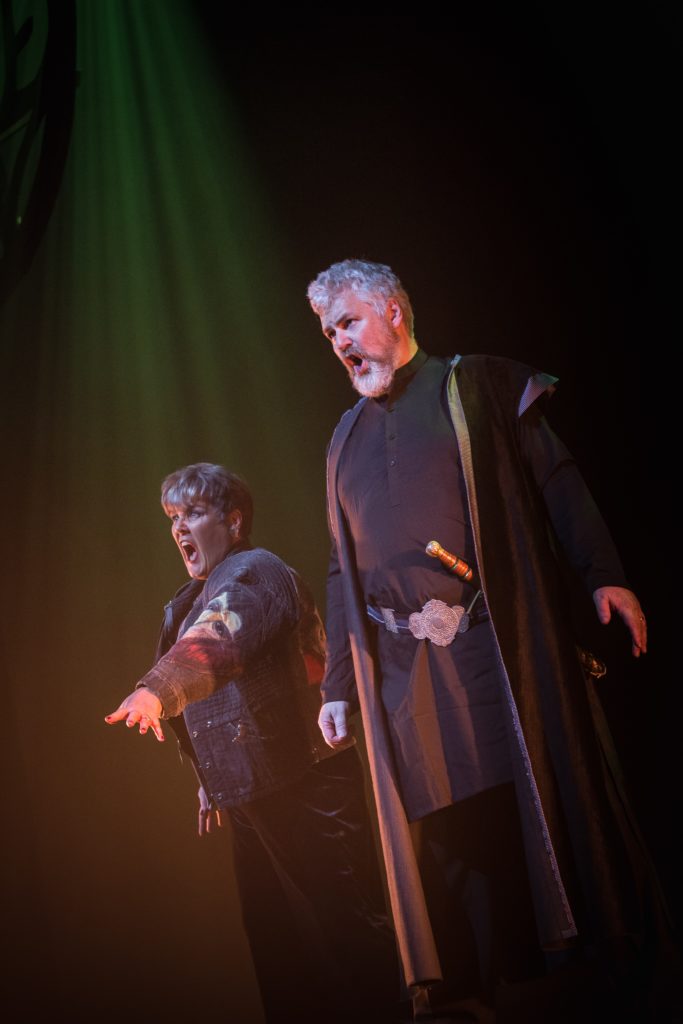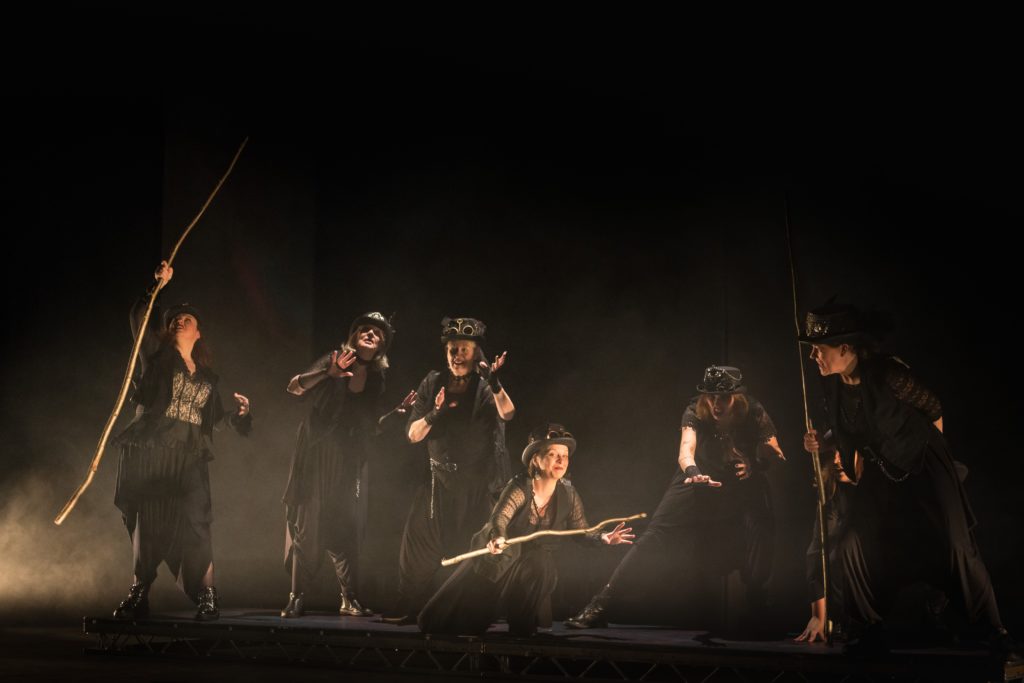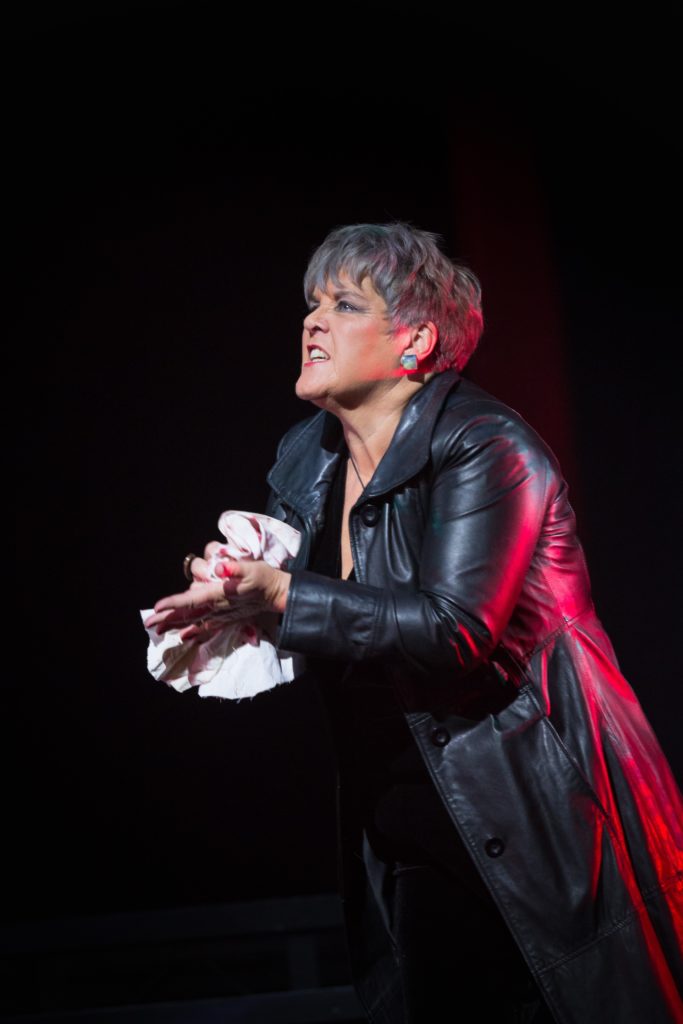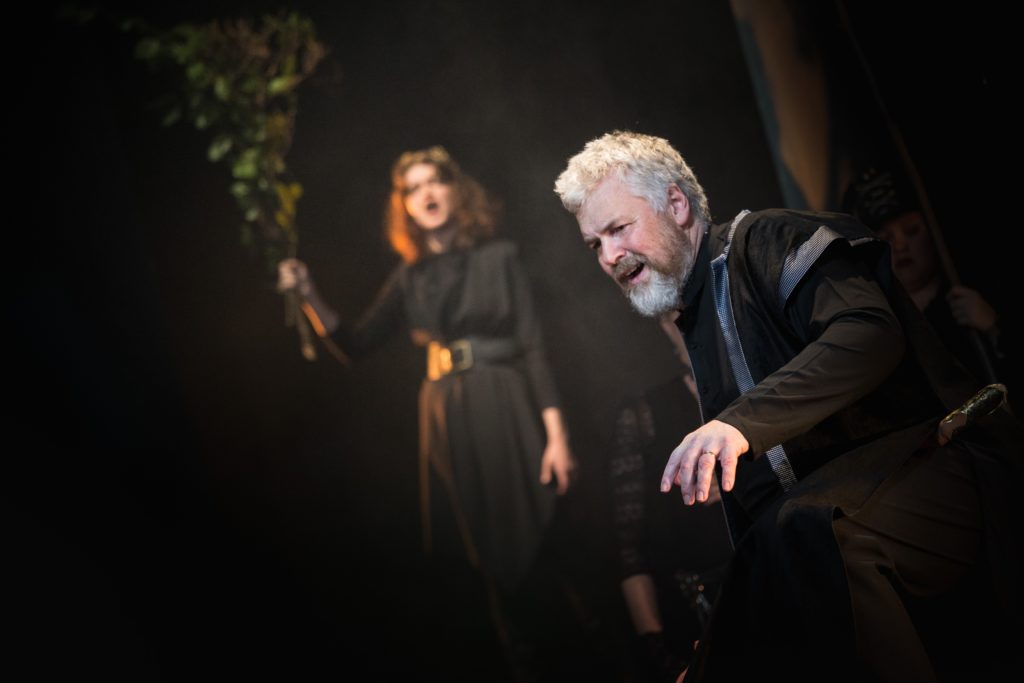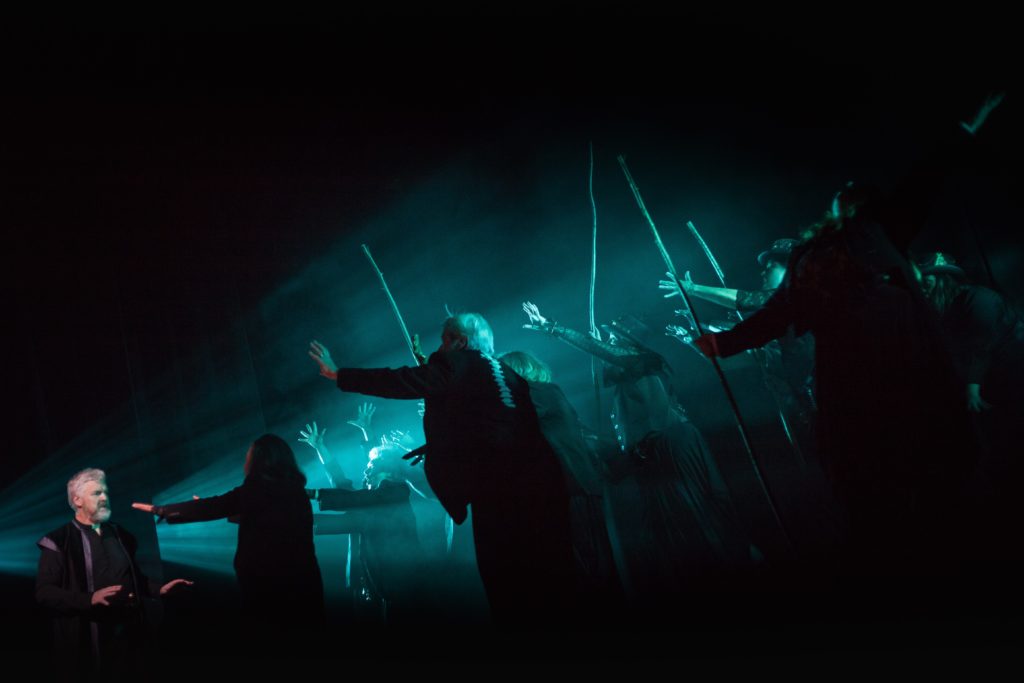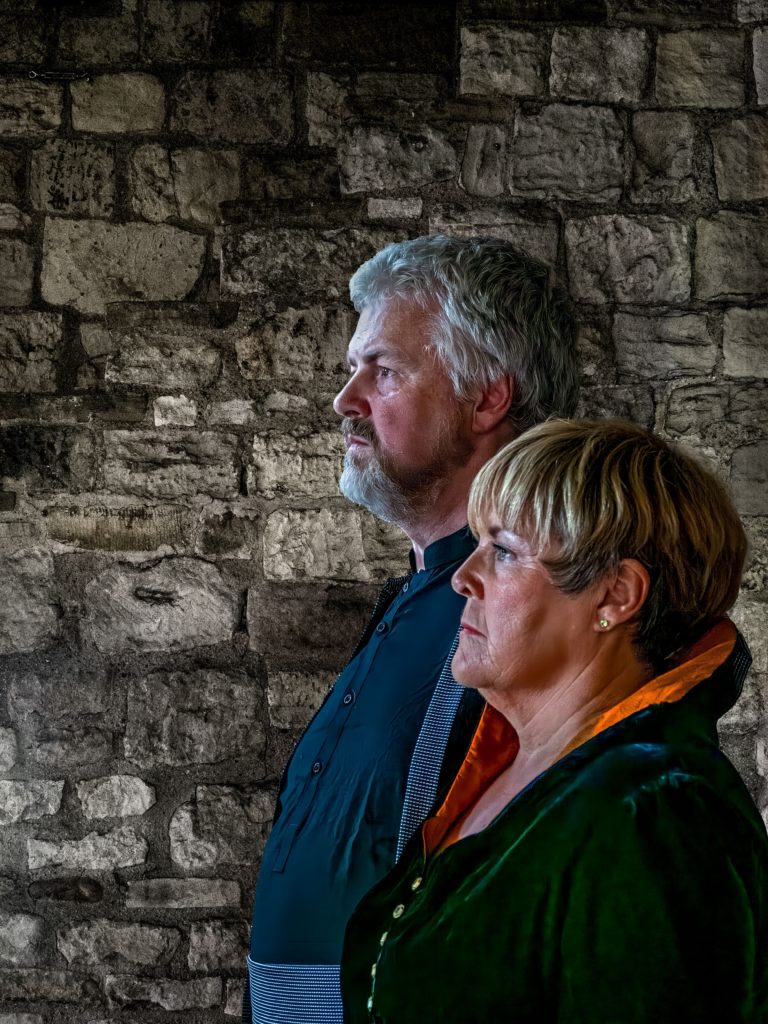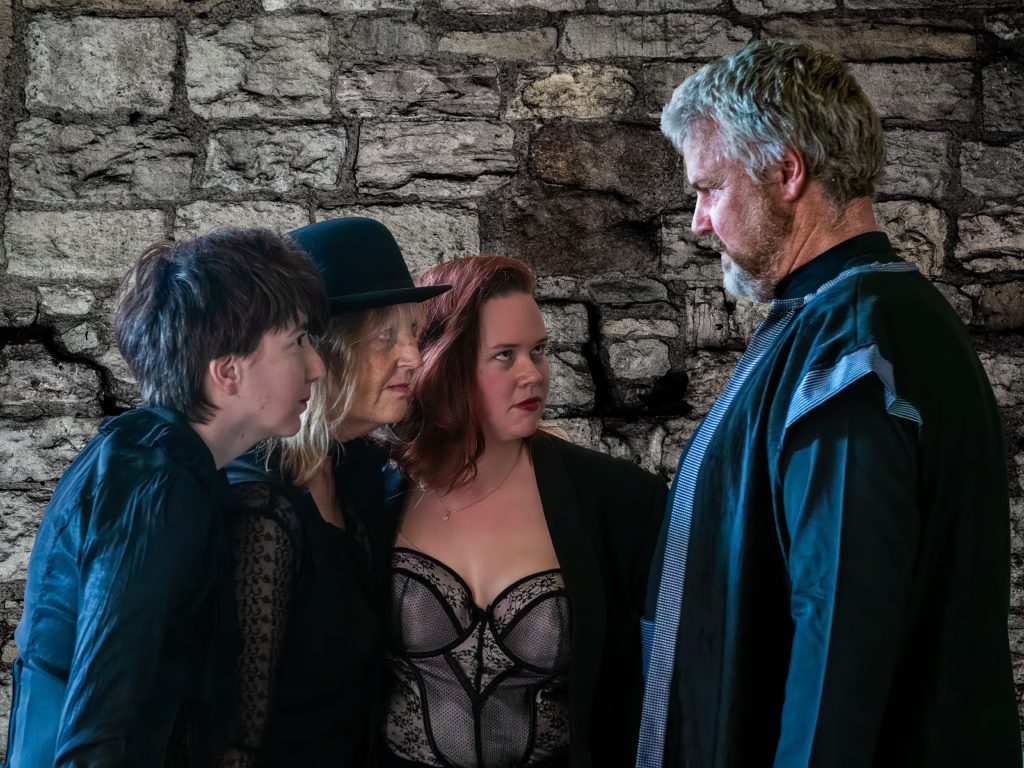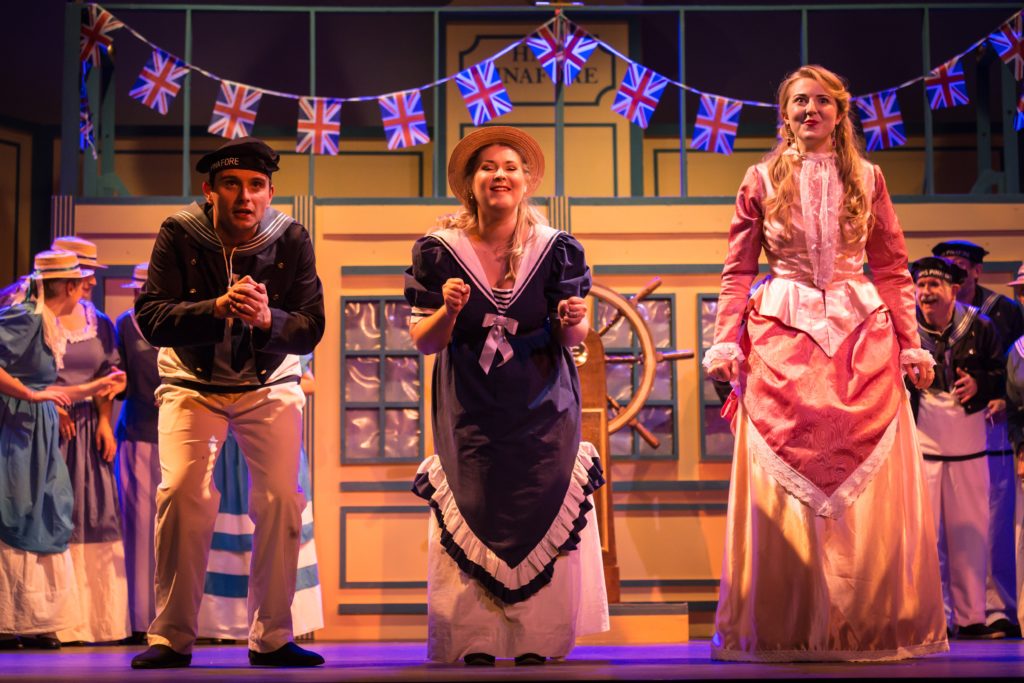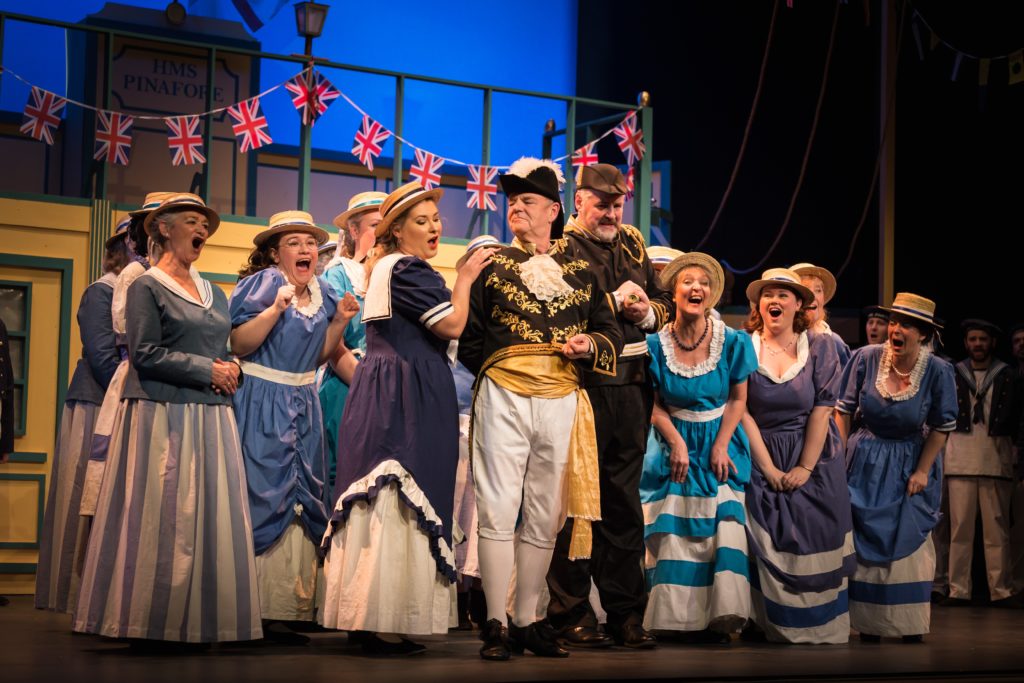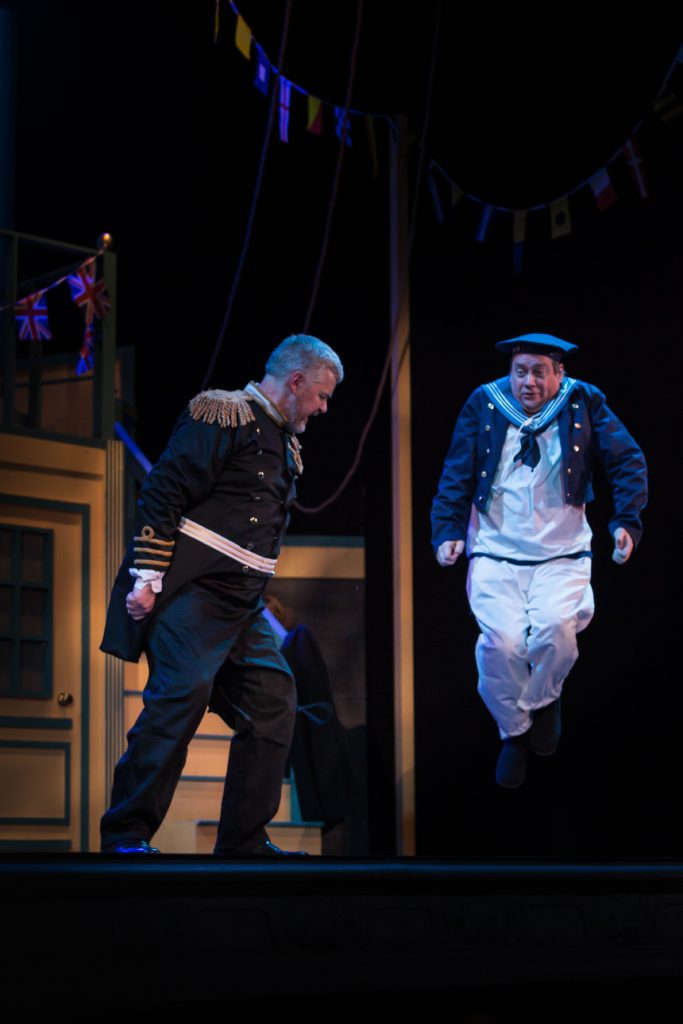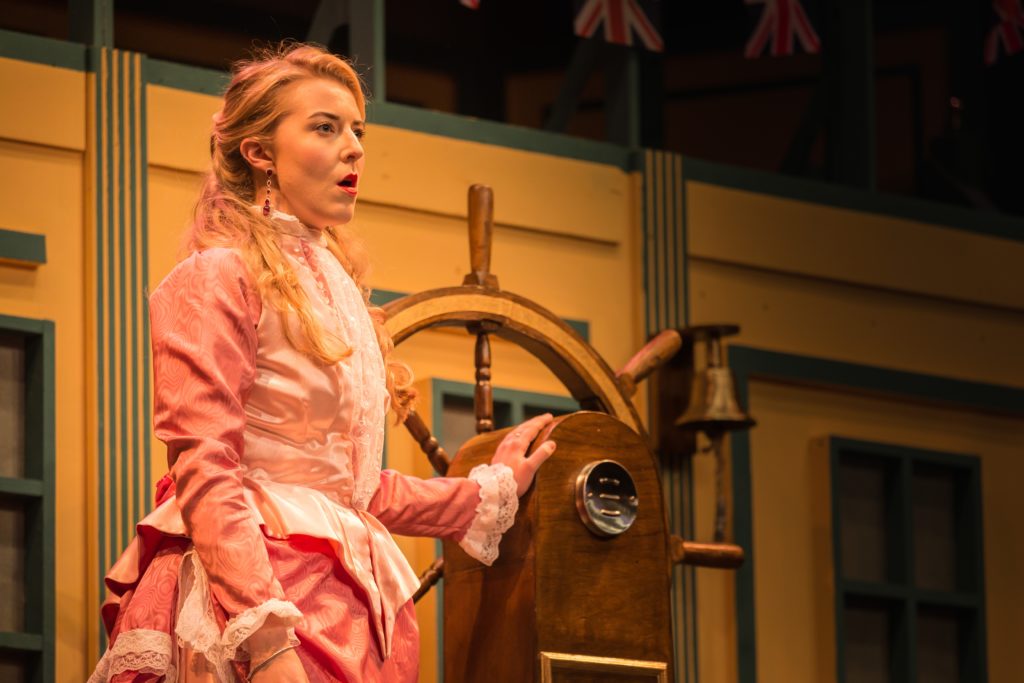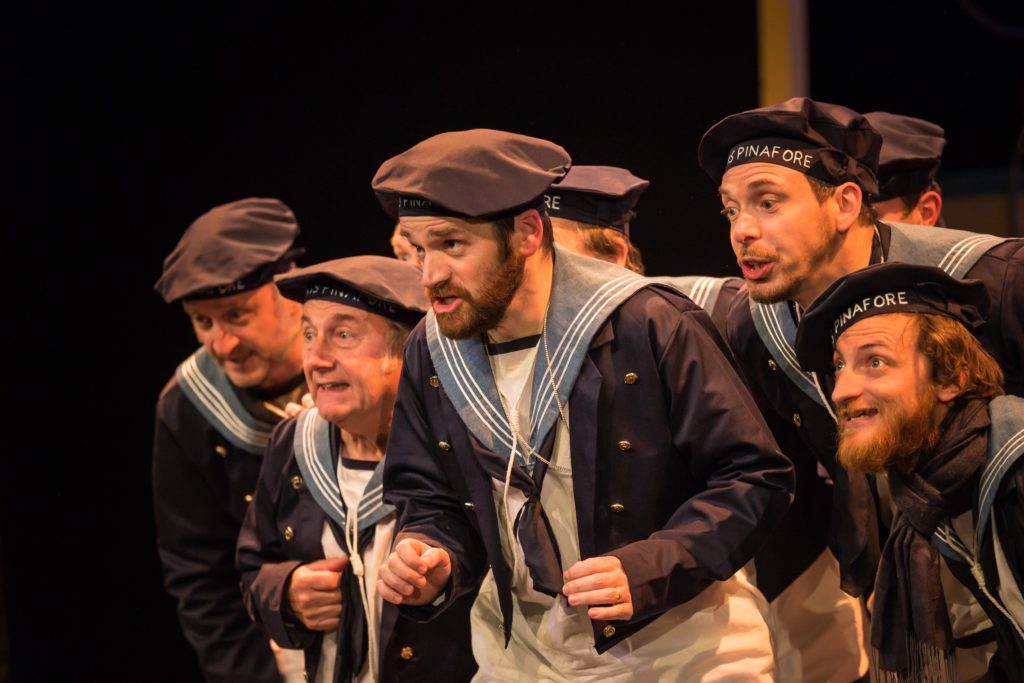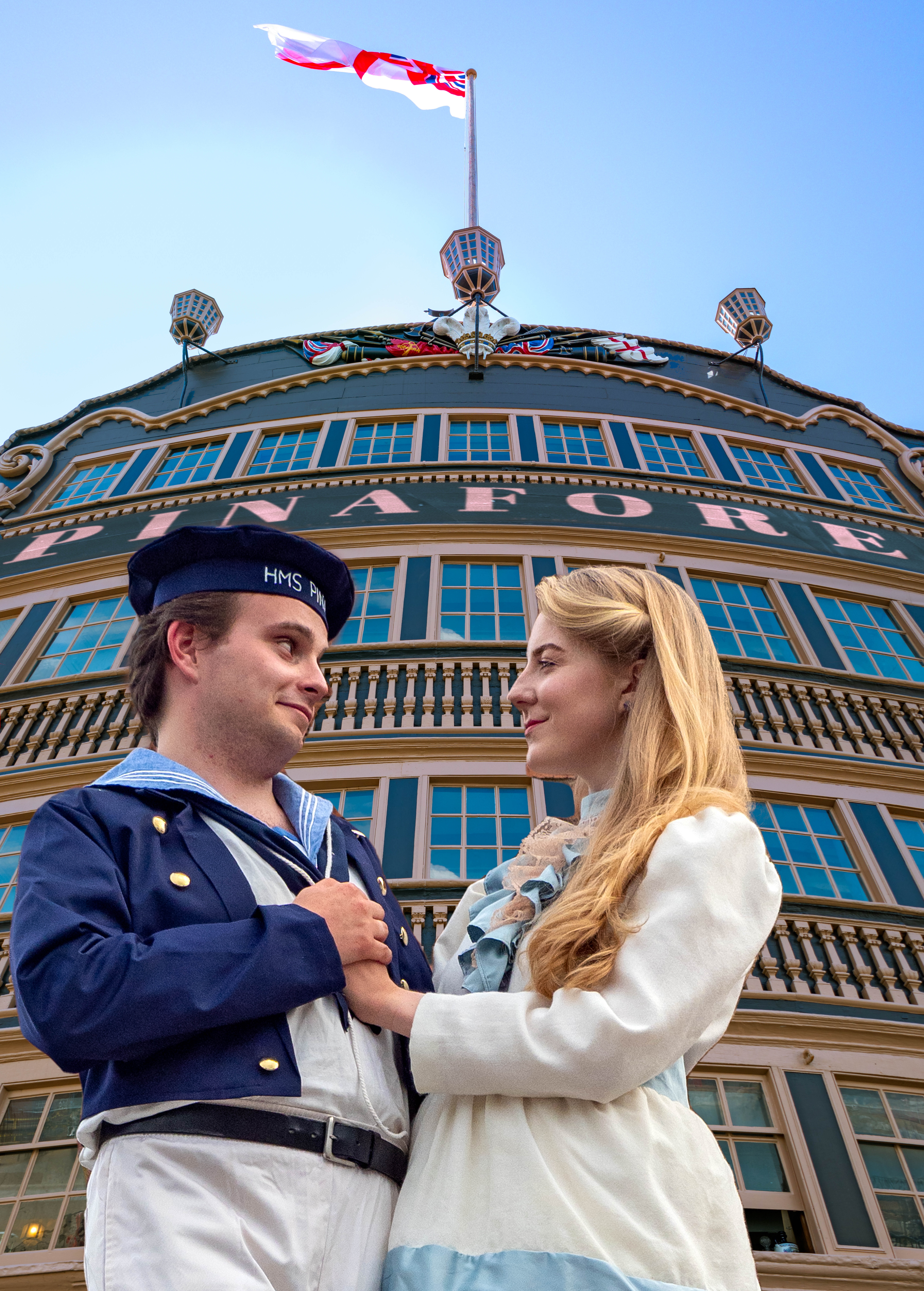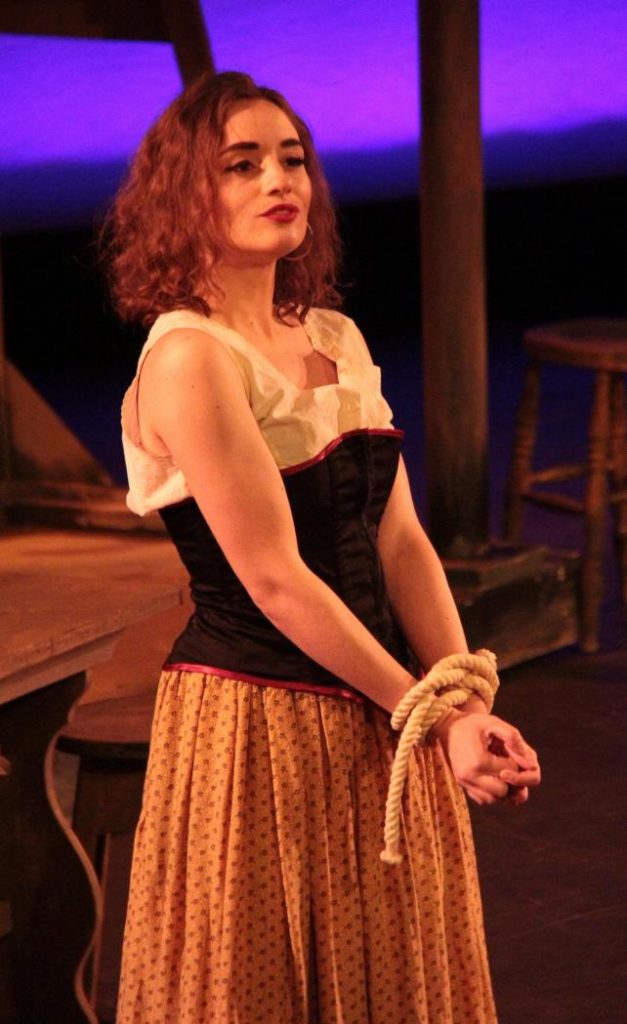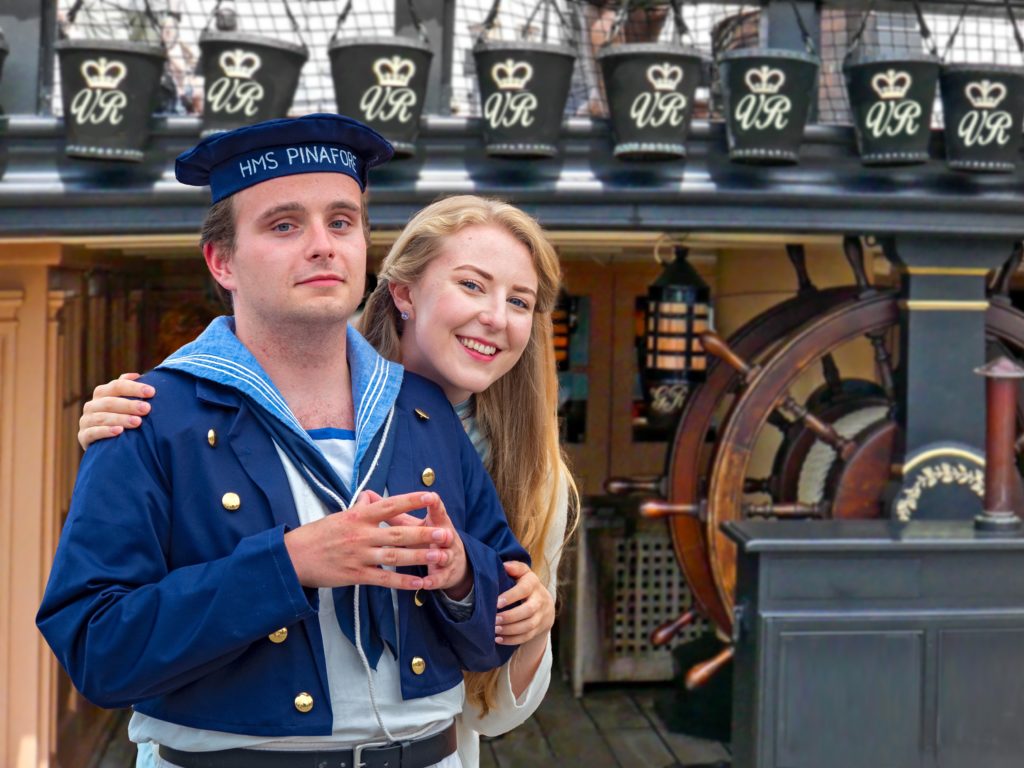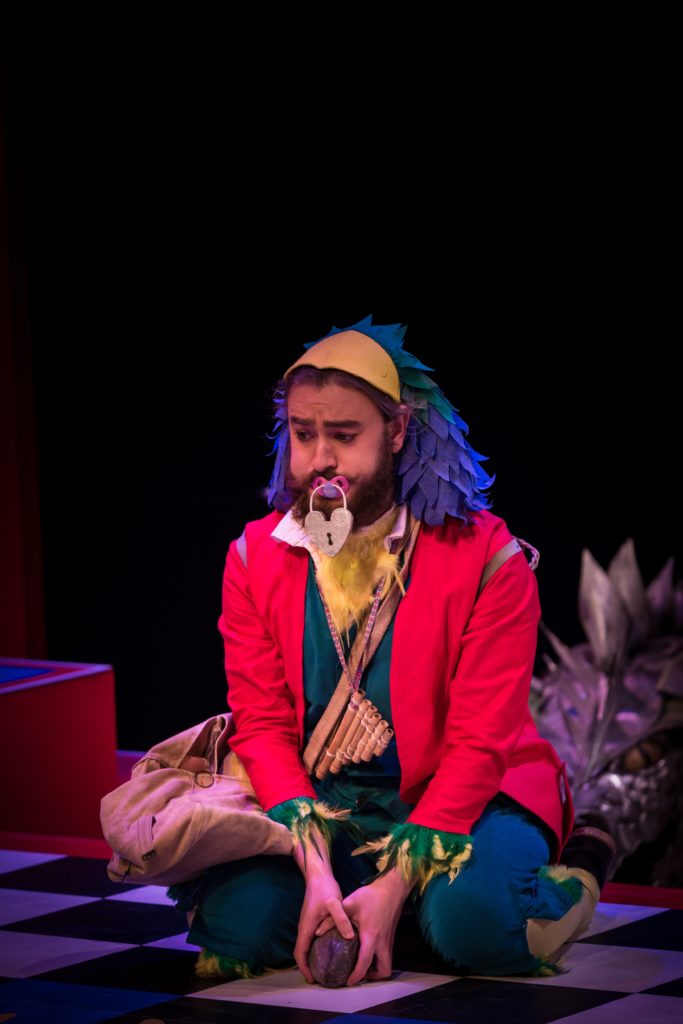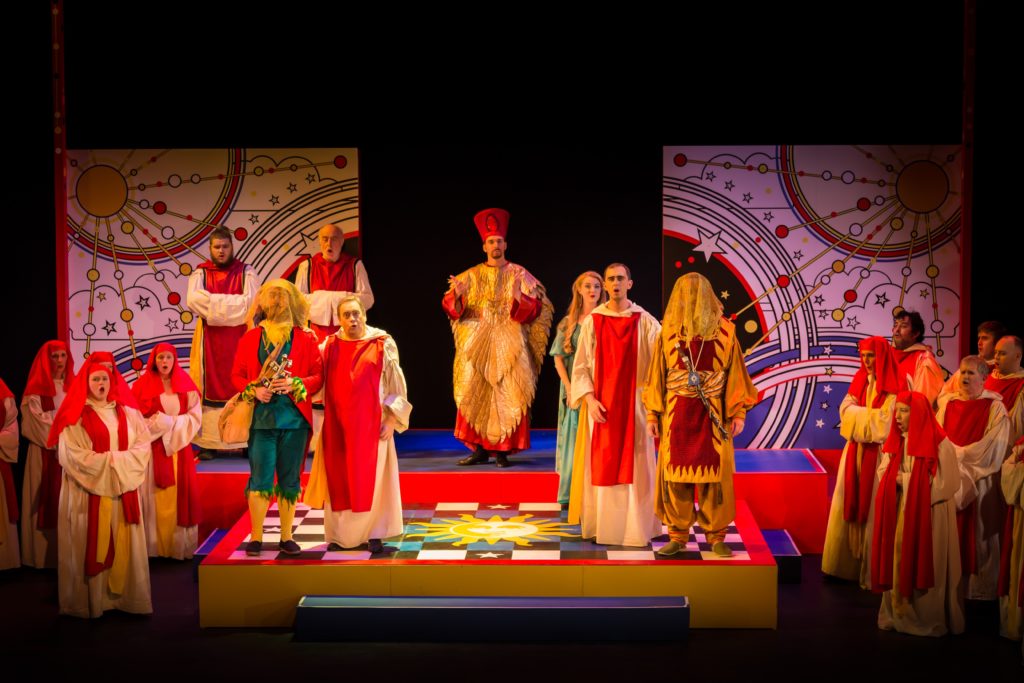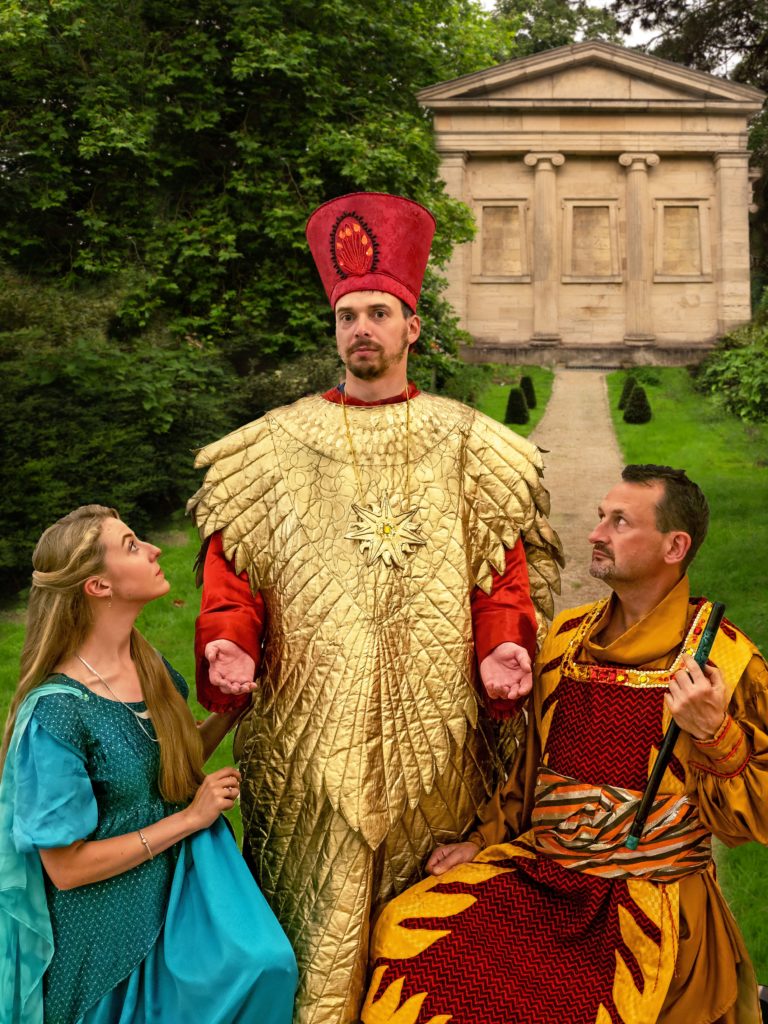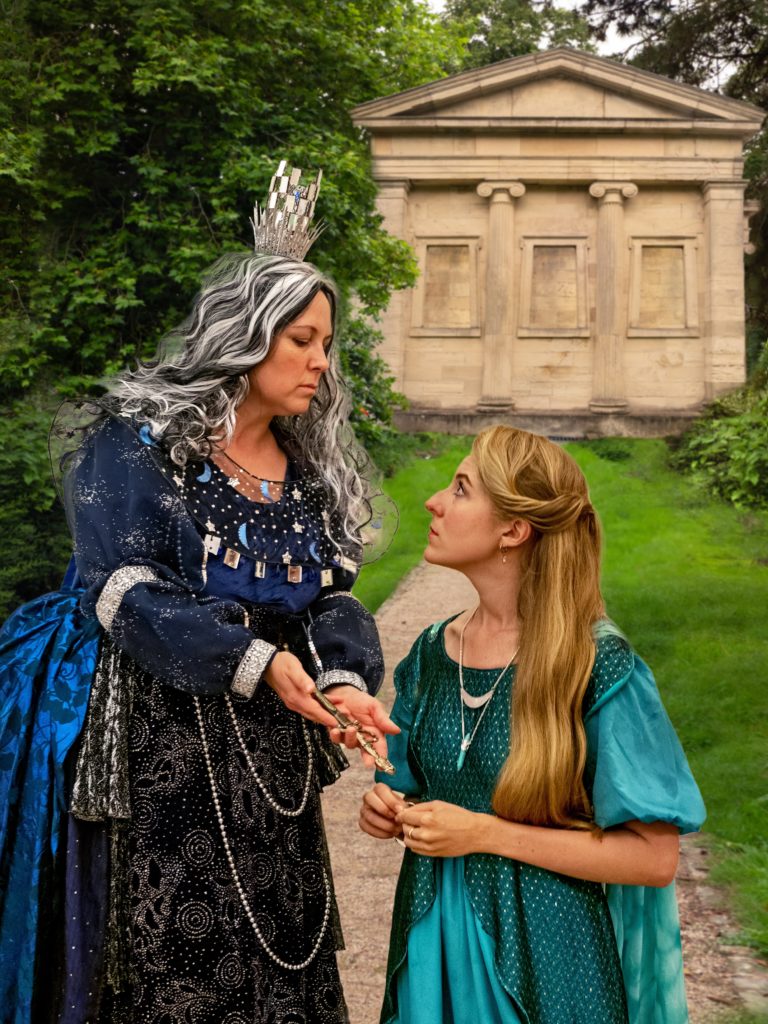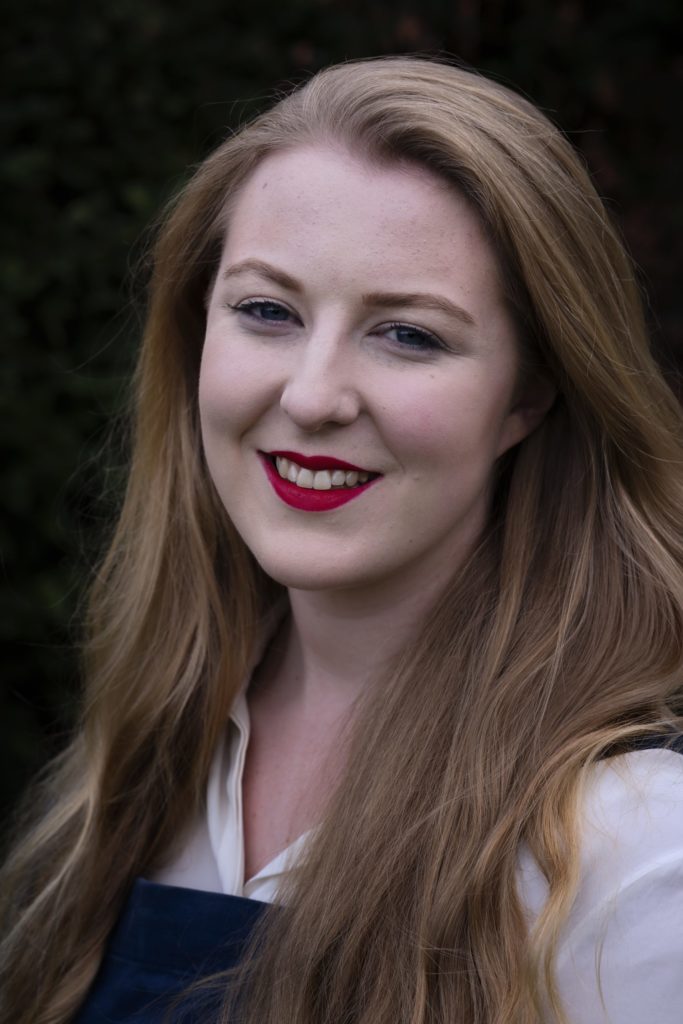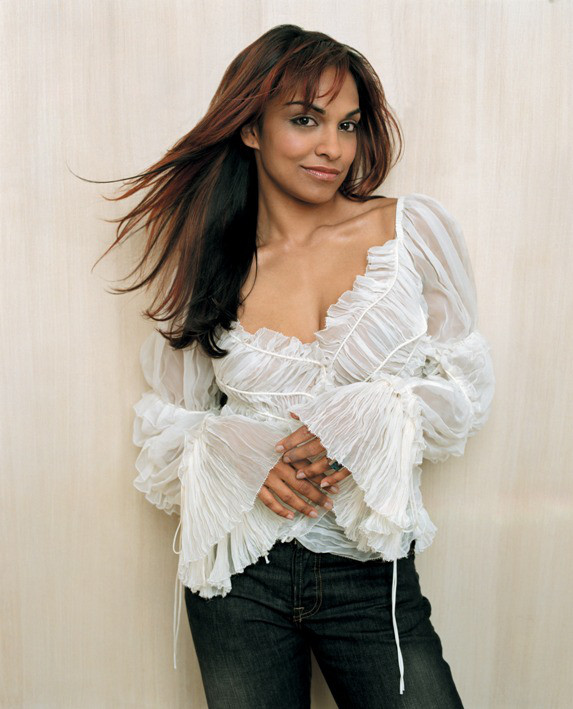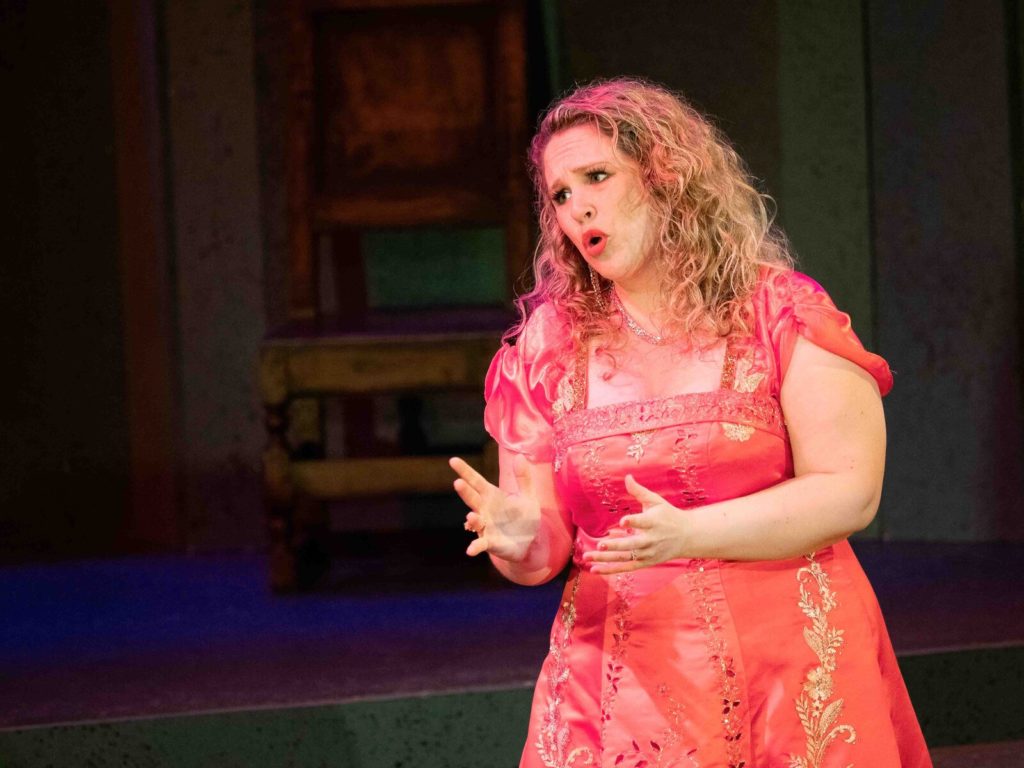
YORK Opera is alive and kicking. Not content to fall back on one of its favourites, it is breaking new ground with Offenbach’s opéra fantastique. But in another sense it is building on the legacy of one man who gave well over half a century to this company as singer, set designer and director: Clive Marshall, who died in March at the age of 88.
A protegée of Clive’s, Liz Watson now takes the reins in this lively production, assisted by John Soper. Clive would have been equally pleased that the chorus includes a dozen new members, a sure sign that he left the company in good health.
In largely modern dress, it uses an older edition than is nowadays usual, in an English translation by Edward Agate, omitting most of the spoken dialogue and almost all of the recitatives inserted after the composer’s death.
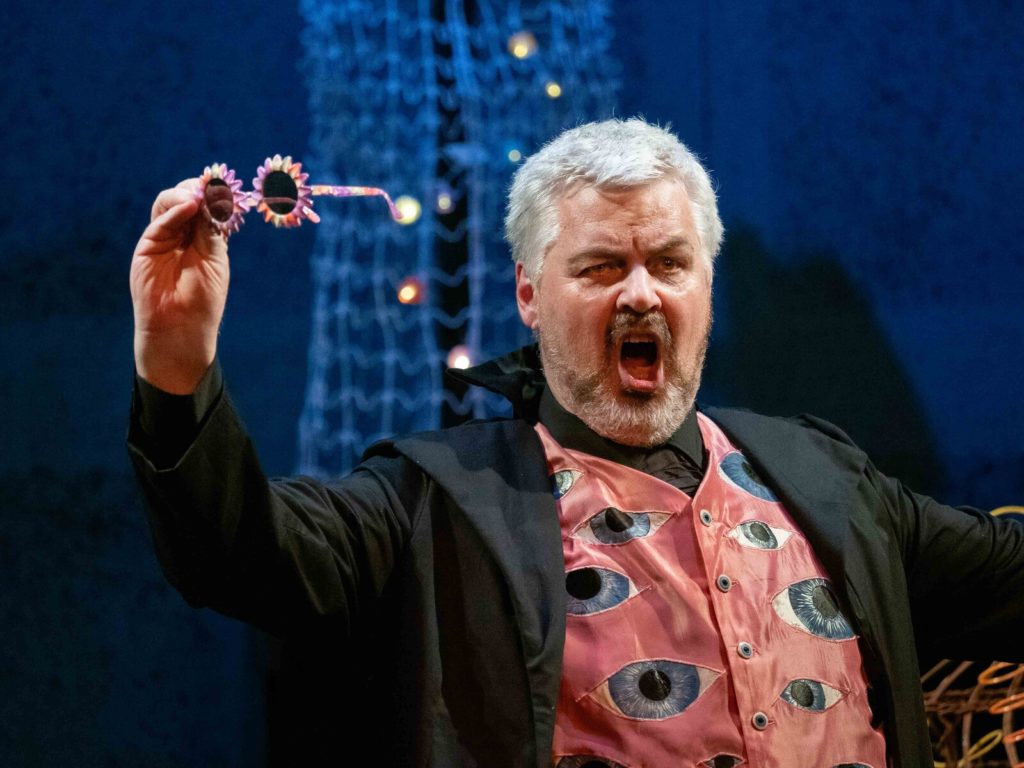
This sensibly cuts the show down to a reasonable two and a half hours. Alasdair Jamieson’s orchestra is reduced to two dozen, in Tony Burke’s version, which is more than adequate for this theatre, given the expertise of the players involved, led by Claire Jowett.
Hamish Brown fashioned a steady Hoffmann, sympathetically unveiling the character’s ups and downs with the opposite sex if without much change in vocal tone. He was at his best in the Legend of Kleinzach. He certainly curried sympathy for his unfortunate predicaments along the way. His alternate (for June 26 and 28) is the equally experienced Karl Reiff.
Watson reminded us of Nicklausse’s origins as Hoffmann’s muse with a subtle change from dress to suit in the prologue. Alexandra Mather’s stage presence offered ample reassurance of Nicklausse’s value as friend to Hoffmann, with an admirable mezzo to boot.
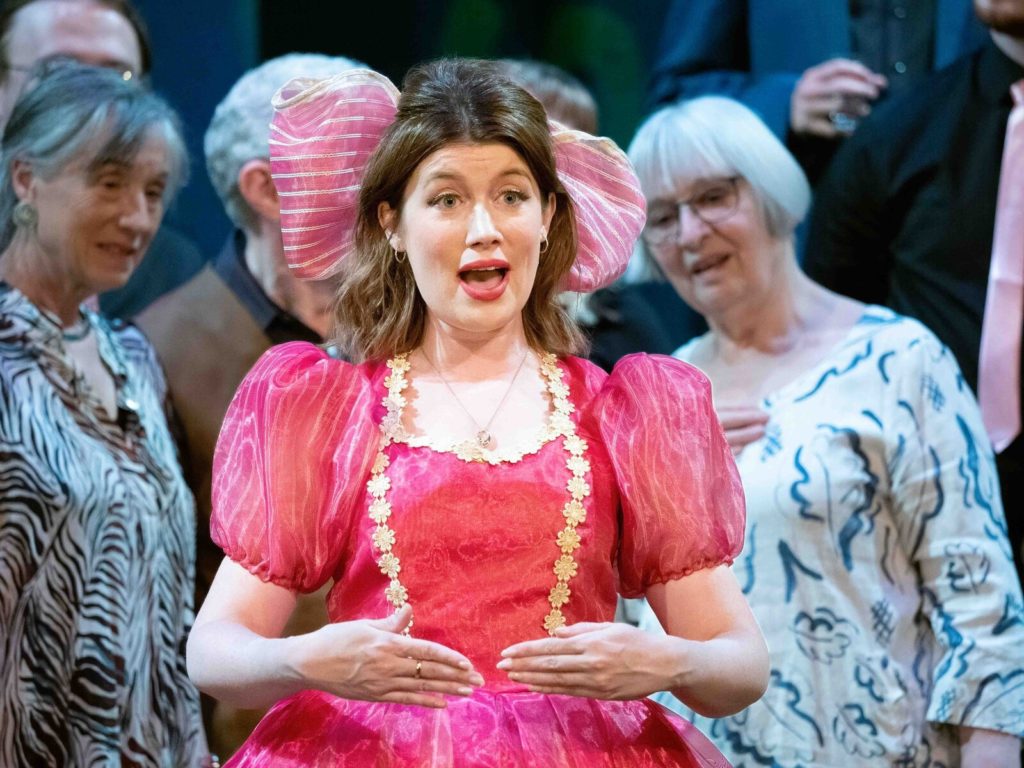
Understandably, three different sopranos covered Hoffmann’s would-be conquests. Stephanie Wong brought delightful coloratura to the mechanical Olympia, carrying off her aria with wit and charm, not least when she had to be rewound.
Ione Cumming’s strong tone as Antonia ensured this was the most dramatic of Hoffmann’s affairs, singing herself to death persuasively. As the fawning courtesan Giuletta, Katie Cole made the most of the famous Barcarole, duping Hoffmann in their duet before sugaring off with a gondolier.
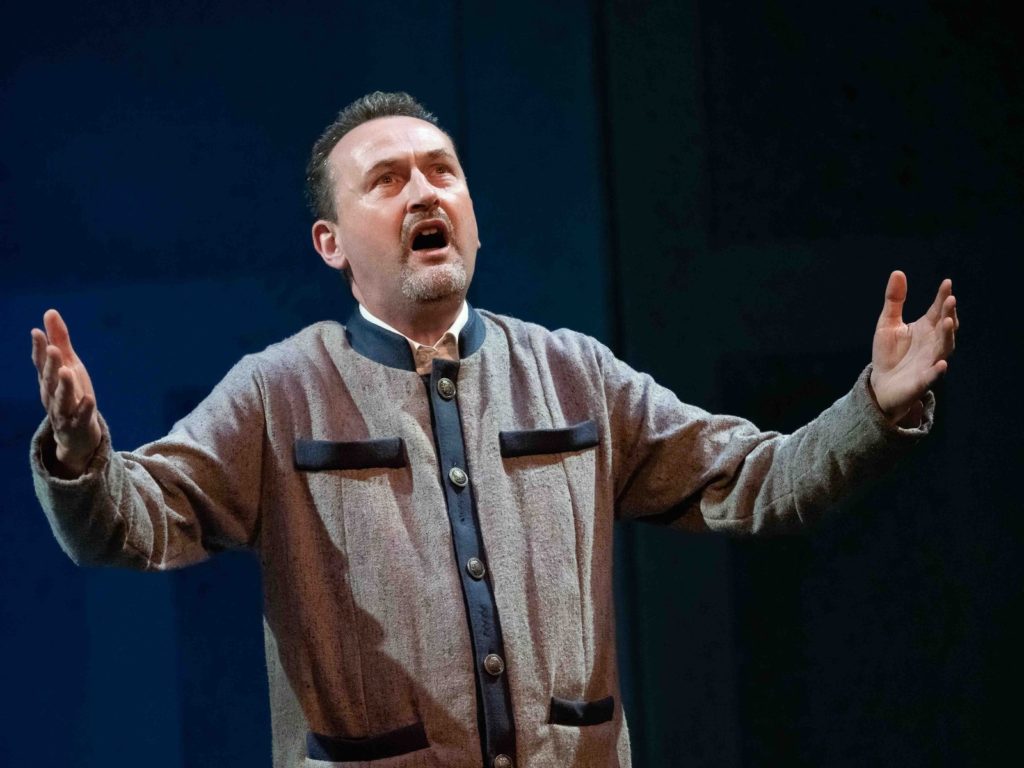
The evil genius behind all three of these deceptions – variously Coppélius, Dr Miracle and Captain Dapertutto – was excellently embodied by Ian Thomson-Smith, in a variety of pseudo-mystical costumes. His first-class diction and forthright baritone carried continuing menace.
Several smaller roles were well characterised. Mark Simmonds as Hoffmann’s perpetual opposition Lindorf, Leon Waksberg as the inventor Spalazani, Molly Raine as his assistant, and Rebecca Smith as the ghost of Antonia’s mother, all caught the eye.
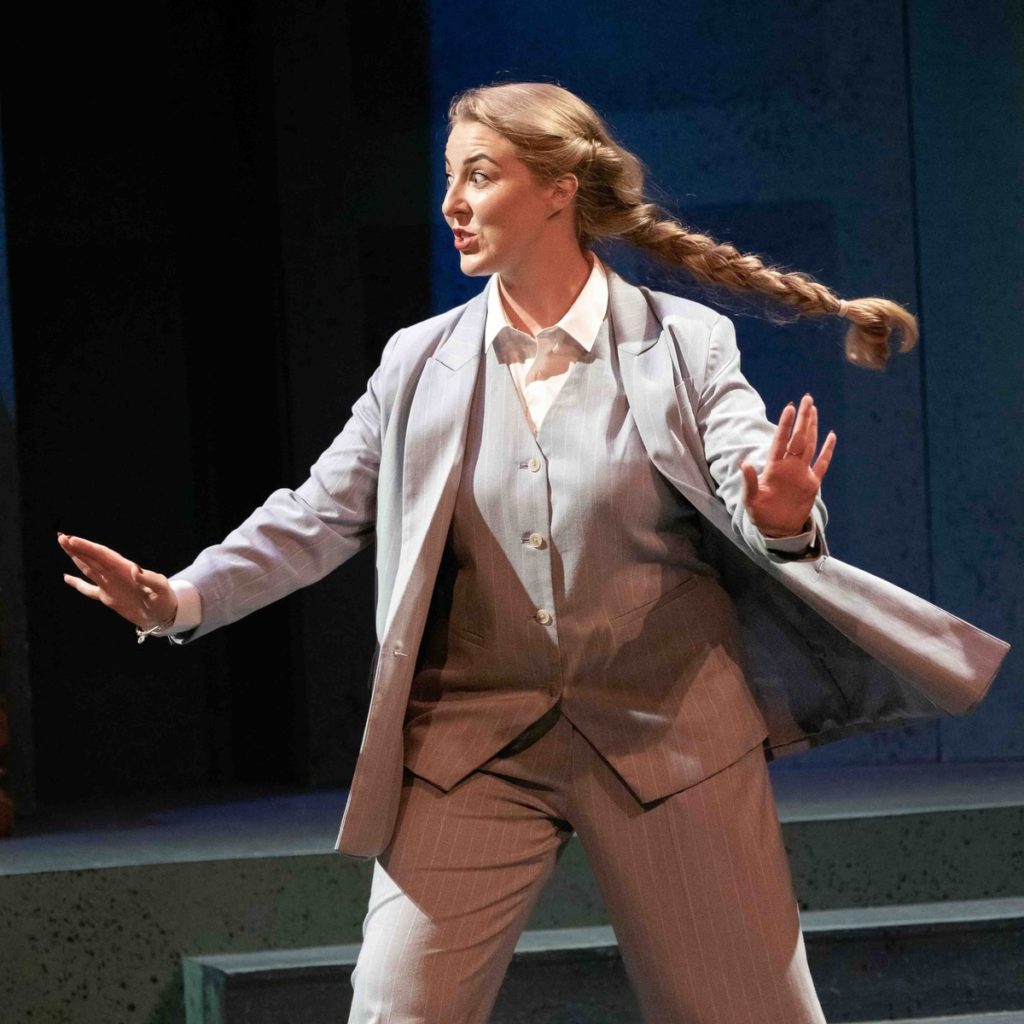
With John Soper’s perpetual set covering the full width of the stage, it was a smart idea to limit the chorus choreography to only ten singers, whose movements largely echoed the trials of the three principal ladies. The chorus, clearly well drilled, threw itself wholeheartedly into the fray when required without too much action off the ball.
It almost goes without saying that Alasdair Jamieson sustained a firm grip on all his forces. The orchestra responded with particular enthusiasm, to the point of occasionally overpowering a couple of soloists. But these were brief misdemeanours and the overall spirit of the evening was unaffected. A tricky opera smoothly negotiated and another feather in York Opera’s cap.
York Opera in The Tales Of Hoffmann, York Theatre Royal, tonight, 7.15pm; tomorrow, 4pm. Box office: 01904 623568 or yorktheatreroyal.co.uk.
